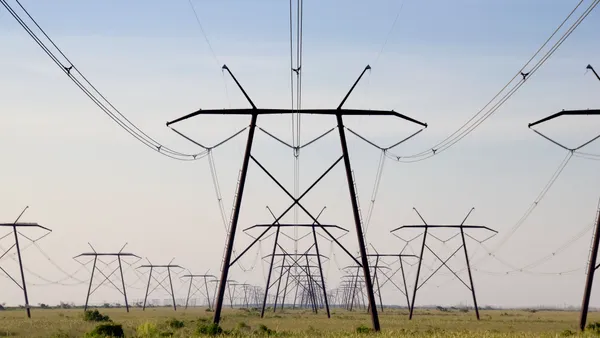Dive Brief:
- Duke Energy has extended until November the review process on its Foothills Transmission Line, after the utility received more than 9,000 comments and faced pressure from green groups to consider alternatives.
- A part of Duke's Western Carolinas Modernization plan, the new transmission line would traverse about 40 miles of the Blue Ridge Mountains along the border of North Carolina and South Carolina.
- The utility's plan also calls for shuttering a coal-fired facility and constructing a new, larger gas plant in North Carolina, but conservation groups have urged the company to consider more renewable energy.
Dive Insight:
It may be too soon to call it a victory for conservationists, but Duke Energy has been inundated with thousands of comments and has had to extend the review schedule for plans to meet energy demand in the Carolinas.
The utility plans to shutter a coal fired facility, and wants to replace it with a new natural gas plant and a transmission line. Opponents say the line would mar unspoiled mountain areas. The company says it is considering a wider range of options to meet power demand in the next 10 to 15 years, including possible alternatives to the transmission line and the proposed Asheville natural gas power plant.
“Our goal is to have the best possible plan with the least impact on property owners, the environment and the communities we serve,” Robert Sipes, Duke Energy's general manager of delivery operations for the Western Carolinas, said in a statement. “Concerns about the transmission line and substation – and the potential impact on tourism and mountain views we all enjoy – are significant."
But Duke stressed that whatever solution is eventually found, growing demand is a real issue it needs to address. "Power demand, particularly on the coldest and hottest days of the year, will continue to grow, and the region’s electrical infrastructure must be upgraded to meet that increased demand," the company said.
Since 1970, peak power demand has increased by more than 360% in Duke Energy Progress' western region, which serves 160,000 customers in nine Western North Carolina counties. Population growth and economic expansion in th region is expected to increase overall power demand by another 15% in the next decade, the company said.












